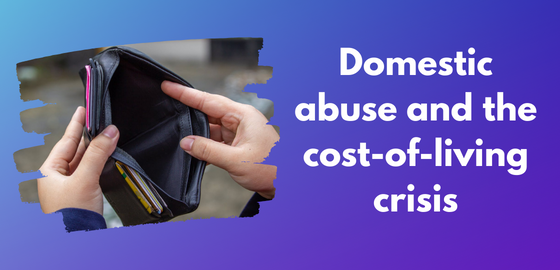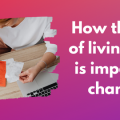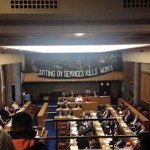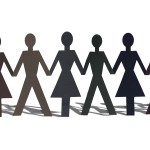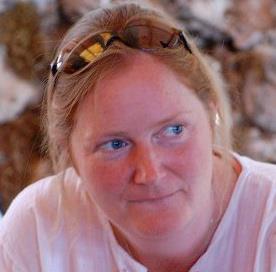The impact of the cost-of-living crisis spreads far and wide; we recently shared a blog about the ripple effects on the charity sector, with enormous changes felt across the industry. But that’s only part of the problem and we must also talk about the significant impact that the cost-of-living is having on victims and survivors of domestic abuse.
Research from Women’s Aid found that:
- Almost all survivors (96%) responding had seen a negative impact on the amount of money available to them as a result of cost-of-living increases.
- Two thirds (66%) of survivors said that abusers were using the cost-of-living increase and concerns about financial hardship as a tool for coercive control, including to justify further restricting their access to money.
- Almost three quarters (73%) of women living with and having financial links with the abuser said that the cost-of-living crisis had either prevented them from leaving or made it harder for them to leave.
These figures are a frightening reflection of the reality so many victims are facing: stay in a dangerous situation or face potential poverty.
In this blog we explore just some of the factors impacting women and girls experiencing domestic abuse amidst the cost-of-living crisis.
Women are feeling trapped within their abusive relationship
Women living in an abusive household are disproportionately affected by the cost-of-living crisis. Many cannot afford to leave and live alone, and this leads to them having to stay in an unsafe home because they feel that, financially, there is no other option.
“A huge issue is that abusers are very aware of this. We see many perpetrators cutting off victims from any financial resources so that they have to rely on them entirely. They want their victim to feel as if they cannot live without them – it’s their way of exerting more and more control, leaving the woman feeling completely trapped,” said Dr Shonagh Dillon, Aurora’s CEO.
This sense of helplessness is compounded for women who have children because of the implications of affording even the most basic of things for their dependents. Research from Refuge found that 58% of frontline workers said that survivors could not afford enough food for themselves and their children, almost half (49%) said survivors couldn’t afford school uniforms and other basics for their children. If a mother in an abusive relationship knows she would be unable to feed her child if she were to leave, she will find herself facing an impossible decision.
Lynne Thompson, Aurora New Dawn Army Advocate, notes: “I have a lot of victims/survivors trapped in military homes because they can’t access local authority housing and cannot afford the private rents – in essence, these women are being pushed to quit their jobs and take benefits. Even then benefits don’t cover rent and leave them in really poor places financially.”
Abusers are using the cost-of-living as a weapon to exert further control
Nearly two out of five UK adults have experienced economically abusive behaviour in a current or former relationship. The cost-of-living crisis is only exacerbating this issue.
“Abusers are using the cost-of-living crisis as a means of justifying their controlling behaviours. They limit victims’ access to money under the guise of concerns about familial financial hardship. In reality, it’s just another way to create a feeling of fear and helplessness in their victim and as a tool for coercive control,” said Shonagh.
For those who have left their abusive relationship, ex-partners are also using the crisis as a reason not to pay (or to reduce) their child maintenance support. This pushes the survivor into their own financial difficulties, with mounting stress and anxiety around how to make ends meet.
Women who are able to escape the abusive relationship are leaving with no money for essentials
Life does not suddenly become easy for victims once they have escaped their abuser, just because victims leave doesn’t mean the abuse ends. Alongside the need to still manage the risk posed to them from their abusive ex-partners they also have to deal with mounting food, energy and rent costs, and they often find themselves in unattainable economic situations.
“We see victims having to return to live with their abusers because they cannot survive and support their family financially. It’s heartbreaking to see, sending them straight back into the same relentless cycle of living with a violent and abusive man,” added Shonagh.
Here at Aurora, we have noticed a huge increase in victims/survivors needing housing advice – they are not able to afford private rent but there is a limit on the number of houses available in social housing. There are more women staying in violent relationships because of this, as well as others who are now sofa surfing with their kids just to stay safe.
Brianne Atkins, Aurora’s stalking advocate, said: “Many of the clients I support are living in council or housing association homes and want to move away from a stalker or away from where the trauma occurred. However, it takes a super long time to get them moved. When I’ve raised renting it is almost always not an option financially so they’re stuck because they can’t afford private rentals and the system isn’t supporting them.”
The cost-of-living is making victims feel even more isolated
With less disposable income there are less opportunities to leave the house and be around other people. This deepens the sense of isolation that many victims will already be feeling.
Speaking of her experience supporting members of the forces, Lynne Thompson – Aurora New Dawn’s Army Advocate – said: “We are having to be a lot more creative about ensuring women who want to access our group work are able to do so with the increasing costs of sending their children to a childminder. We’ve noticed that we were only really seeing women with school aged children and over on our most recent group, which, in turn, makes those clients with younger children experiencing domestic abuse more isolated, at an already isolating time.”
Our work with women caught up in the criminal justice system means we are able to run groups for women in prison. A lot of the women have told us that they are having reduced visits due to family and friends as they are unable to afford the cost of travel. This has a significant impact on victims’ mental health and their feelings of seclusion, especially when they cannot see their children. We have adapted our sessions to offer emotional support to women affected by this.
Support services for victims are under strain
Across the board, support services are under major strain. We have noticed that victims trying to access civil legal advice are severely impacted by the cost-of-living crisis.
“We have run a free pro bono legal advice clinic for women we support since February 2023. One of the women, Jenny*, doesn’t qualify for legal aid but doesn’t have extra money for legal fees. Jenny accessed our pro bono clinic for advice and support and like many of our clients she is now having to navigate the civil justice system without any financial support from the state and no savings to pay for a legal representative. Our pro bono clinic is full every session – showing the desperate need for it – and we continue to benefit from this as a free resource from The Faisal Luke Pro Bono Clinic, for victims and survivors.” said Shonagh.
Adding to this, Zoe Jackson – Operations Manager at Aurora – said: “In the forces service, we are seeing people fleeing with no money to buy anything for their new properties. We’re working with other charities to try and negotiate some support. Up until July, we were able to dip into the Safelives Circle fund but that has now closed. The Women’s Aid hardship fund closed within a matter of days due to being so oversubscribed. It’s an awful case of these incredible services being underfunded and oversubscribed.”
At the start of this year, it was found that 97% of charities and social enterprises had been directly affected by the cost-of-living crisis. The third sector has felt the hit considerably, and – consequently – service users feel the aftermath too.
What does Aurora recommend?
There are many ways you can get help if you are in a difficult situation.
- If you are experiencing domestic abuse call 0808 2000 247 or our helpline in Hampshire 02394 216 816.
- If you want support for financial abuse, please contact Surviving Economic Abuse I need help – Surviving Economic Abuse.
- For general advice on the cost-of-living crisis please reach out to your local Citizens Advice Bureau Get help with the cost of living – Citizens Advice.
We believe there is also more that can be done to support victims and survivors because the need far outweighs what is available. We fully support the call from Women’s Aid made in its report on the impact of the cost of living impact on survivors of domestic abuse, including: an Emergency Domestic Abuse Fund, reducing energy costs for refuges during the crisis and making better provision of legal services for survivors.
If you would like to support the Aurora New Dawn charity and you are able to donate you can do so here:
If you would like to support our female only group work and you are able to donate you can do so here:
Next step…
Do you want to get in touch with us?
Want to help us raise awareness?
Want to donate to our cause? 💜
